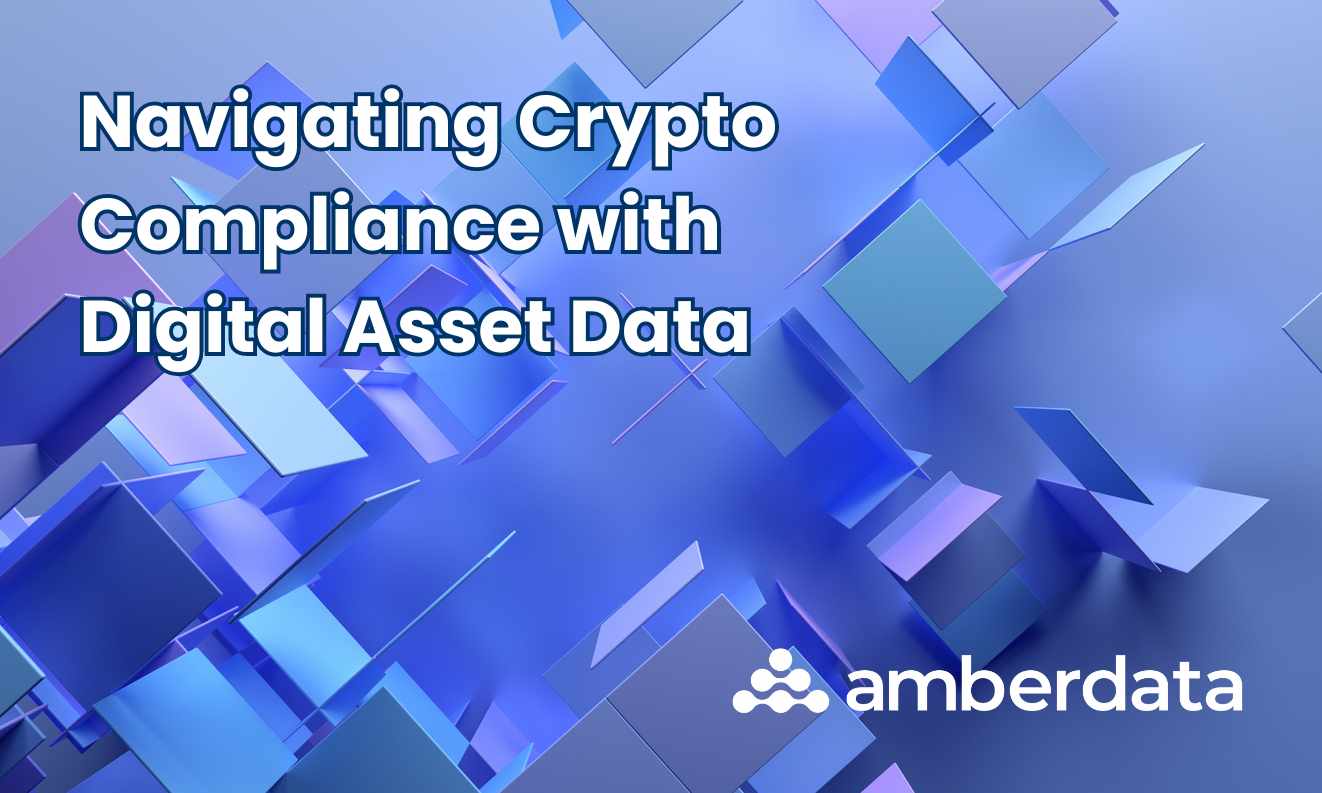Navigating Crypto Compliance with Digital Asset Data

If you’re a financial institution working with digital assets, you’re aware that tax and regulatory compliance is becoming more important every day. The digitalization of assets enables huge sums to change hands easily every day, so questions of money-laundering, identity, taxation, and a host of others are a legitimate concern.
The decentralized and pseudonymous nature of much of the cryptoeconomy makes some aspects of regulatory and tax compliance difficult. Additionally, compliance becomes increasingly important as big-name, regulated TradFi institutions are now adopting digital assets and marketing them to mainstream customers.
This couldn’t be more evident than in the recent 84-page crypto statutory proposal from the U.S. Internal Revenue Service (IRS) which aims to, among other things, formally define “digital assets” and “brokers” in the crypto space, and instruct these brokers on what events are taxable and how they must be reported. This proposal comes on the heels of IRS guidance earlier in the year regarding the handling of staking rewards.
The novel and complex nature of digital assets and decentralized transactions can complicate accounting and tax record-keeping. The different types of transactions, such as token transfers, staking tokens into pools, obtaining fees, rewards, and more, gives you an example of the complexity. Additionally, according to the IRS, the following are all taxable events:
- Sale of a digital asset for fiat
- Exchange of a digital asset for property, goods, or services
- Exchange or trade of one digital asset for another digital asset
- Receipt of a digital asset as payment for goods or services
- Receipt of a new digital asset as a result of a hard fork
- Receipt of a new digital asset as a result of mining or staking activities
- Receipt of a digital asset as a result of an airdrop
- Any other disposition of a financial interest in a digital asset
Add in the ease of cross-border transacting in multiple tax jurisdictions and you can see that, if you want to stay in business and out of hot water, you must have crypto tax compliance data sources that encompass the wide variety of activity in the space.
Amberdata provides the robust data you need
Our institutional-grade crypto data enables you to confidently address accounting, administration and compliance.
Comprehensive historical data
Our comprehensive historical and real-time crypto market, blockchain, and DeFi data help your compliance efforts by eliminating the need to source and integrate data from multiple vendors. Because this data is granular, you can use it to generate balance sheets, income statements, cash flow statements, and other essential accounting documentation, staying abreast of your company’s tax and audit exposure.
Blockchain Data
Our blockchain data enables you to get full historical activity for all accounts, as well as the real-time data needed for accounting and tax compliance. Blockchain data also enables you to access comprehensive transaction data, including size, addresses, token transfers, gas fees, timestamps, and all other recorded data.
Ease of Access
Crypto data is stored on multiple blockchains and on many centralized and decentralized exchanges. Accessing, cleaning, and standardizing all this data on a timely, continual basis is difficult and expensive. To ensure compliance, you need to be able to access it easily and inexpensively. We are the only digital asset data provider that offers comprehensive, actionable historical and real-time, on-chain, and cross-exchange market data, eliminating the need to obtain and integrate data from multiple vendors.
Stay ahead of regulatory evolution
Crypto regulation is evolving, and data is key. The crypto industry is still in its infancy, and it's difficult to know how regs will evolve and what will be demanded in specific audits. And what’s necessary today may change tomorrow. We've used our deep experience and specific sector expertise to build proprietary datasets that are indexed, searchable, and normalized to time series so you can quickly and easily answer any questions about your digital asset activity.
Amberdata was created for you
Amberdata was built to serve companies like yours. Partnering with us for crypto compliance data infrastructure enables you to concentrate on your core business. In addition to infrastructure, we keep you informed of activity in the crypto markets with our research and commentary each month in our blogs, resource library, guides and primers, as well as with our comprehensive, granular, and normalized data.
Amberdata provides solutions and expertise for every digital asset class participant. Whether you’re a financial institution just entering the asset class, a seasoned crypto-native looking to expand coverage, or a Fintech building or enhancing products, Amberdata has digital asset data solutions to meet your needs.
Our unified crypto API and data infrastructure provides a single integration point for obtaining a complete view of the cryptoeconomy. We offer comprehensive data as well as insights into blockchain networks, crypto markets, and decentralized finance. We empower financial institutions with critical market, blockchain, and DeFi data for research, trading and analytics, risk management, derivatives analytics, and compliance.
To learn more about Amberdata, please contact us to book a demo.
Amberdata
Amberdata is the leading provider of global financial infrastructure for digital assets. Our institutional-grade solutions deliver data, analytics and comprehensive tools and insights that empower financial institutions to research, trade, and manage risk and compliance in digital assets. Amberdata serves as a...
